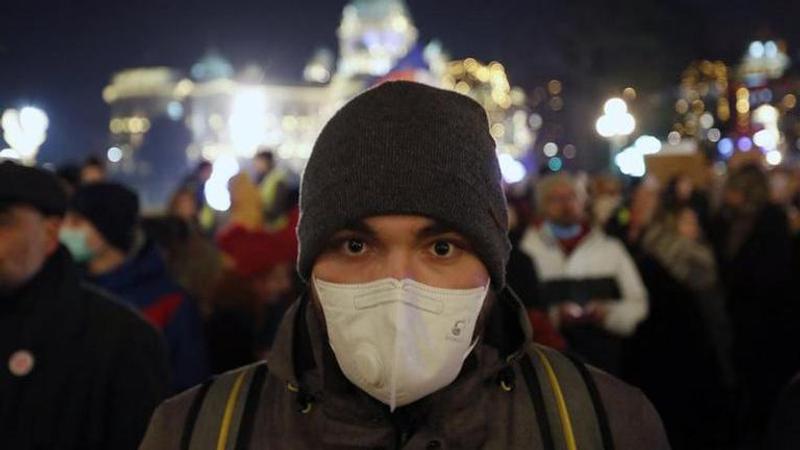Published 08:09 IST, March 24th 2020
Americans sew face masks for health workers
Scores of Americans are answering pleas from hospitals, doctors and nurses so desperate for personal protective equipment amid the viral pandemic that some have turned to the public, saying do-it-yourself face masks are better than nothing

Bill Purdue waterproofs basements for a living, but he's spent the past few days in his buddy's Washington, Indiana, auto trim and upholstery shop cutting rectangles of cotton fabric that his friend sews into face masks.
Fashion designer Briana Danyele left Italy last month to return to her mother's Greer, South Carolina, home, and in recent days turned the living room into a mini sewing factory making masks that she embroiders with the slogan "We Got This!"
They're among scores of Americans answering pleas from hospitals, doctors and nurses so desperate for personal protective equipment amid the viral pandemic that some have turned to the public, saying do-it-yourself face masks are better than nothing. And for those sitting at home worrying as the virus strains hospitals and the economy teeters, sewing masks makes them feel less helpless.
"Whatever it takes to get the job done, that's what I want to do," said Purdue, 57, whose daughter works at the women's hospital in Evansville, Indiana. He responded to a Facebook post last week from Deaconess Health System in Evansville, which asked the public for help.
For most people, the new virus causes only mild or moderate symptoms, such as fever and cough. For some, especially older adults and people with existing health problems, it can cause more severe illness, including pneumonia. The vast majority recover.
But the virus is spreading at a rapid rate, and starting to max out the health care system in several cities.
Deaconess spokeswoman Pam Hight said the hospital system assessed its supplies and realized that "if this keeps going and gets as bad as it has in other cities, we would have a shortage." Like many hospitals, they're advising volunteers to use tightly woven 100-percent cotton and elastic straps, and posted a how-to video.
Updated 09:33 IST, March 24th 2020




